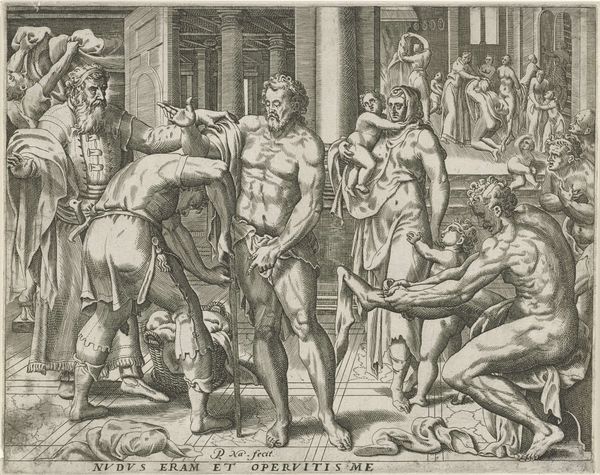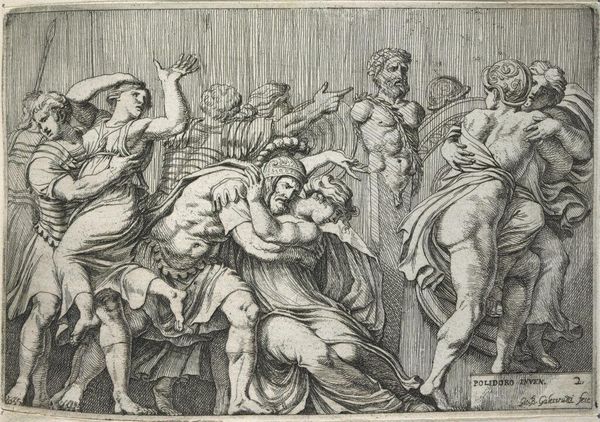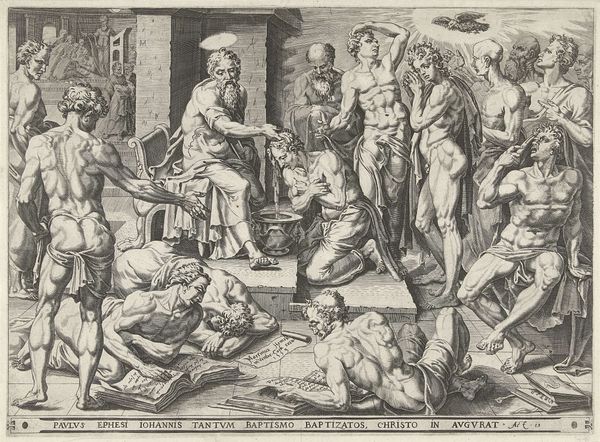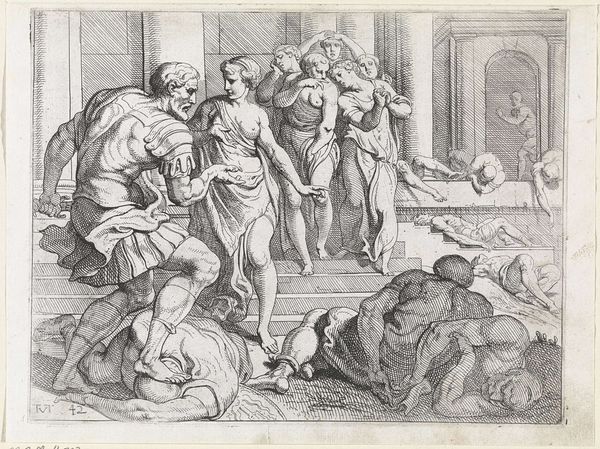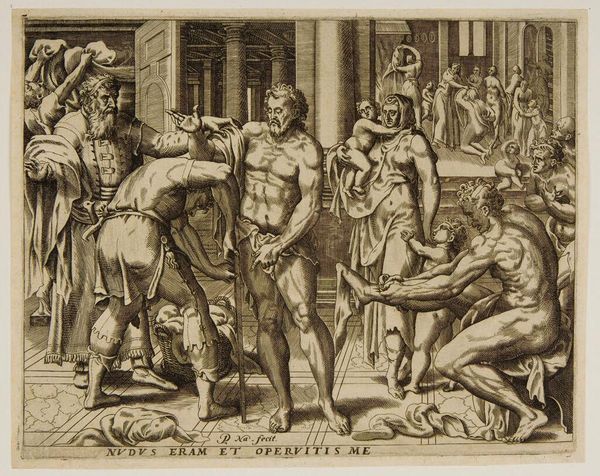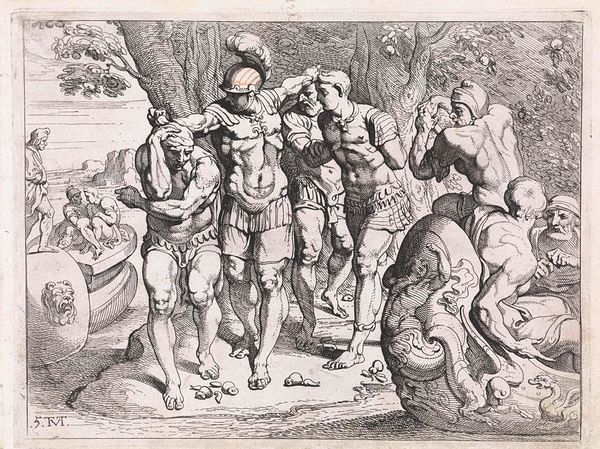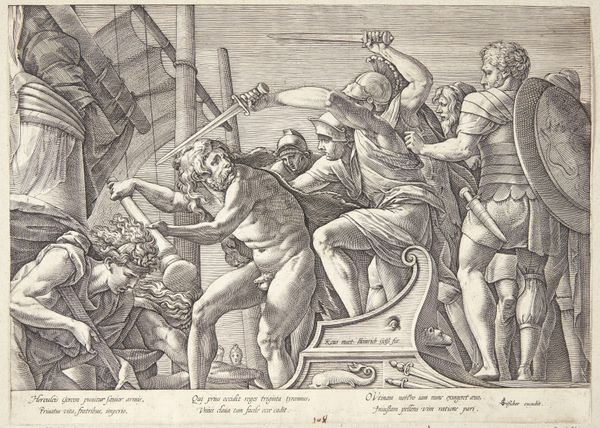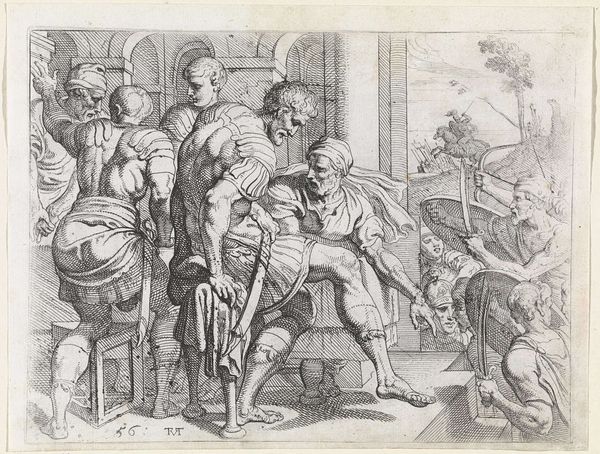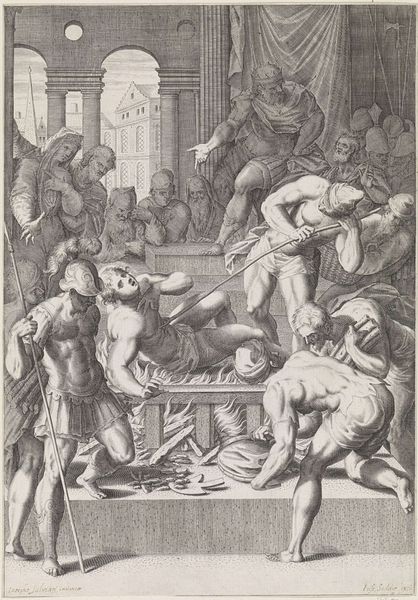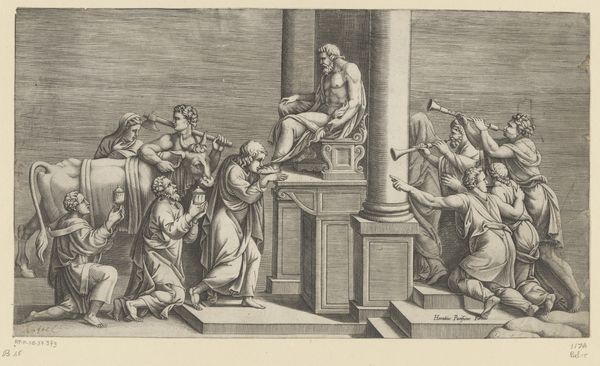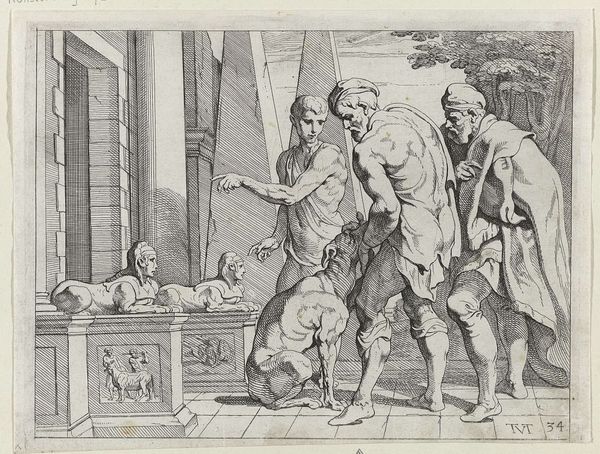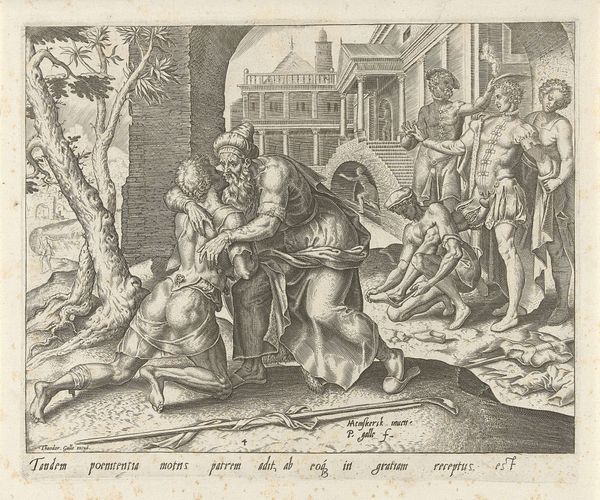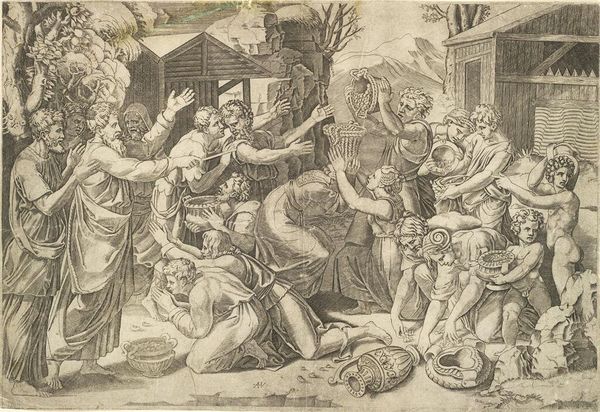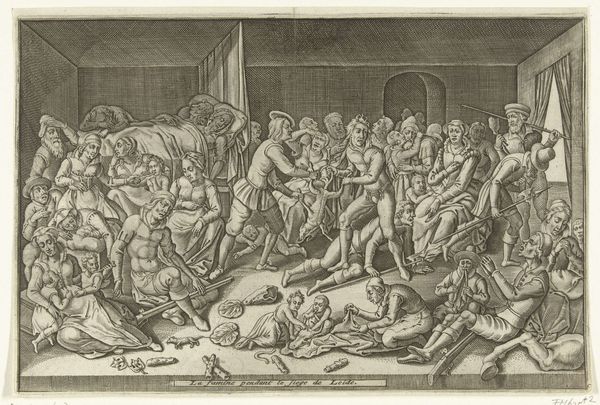
engraving
#
baroque
#
pen illustration
#
pen sketch
#
pencil sketch
#
greek-and-roman-art
#
figuration
#
pen-ink sketch
#
line
#
pen work
#
history-painting
#
engraving
Dimensions: height 192 mm, width 255 mm
Copyright: Rijks Museum: Open Domain
Theodoor van Thulden created this print, titled "Odysseus and Telemachus Washing," around 1643. It depicts a scene from Homer's Odyssey, but it also evokes social dynamics familiar to van Thulden's 17th-century Dutch audience. The image’s visual codes are rooted in classical antiquity, yet they speak to contemporary concerns about hospitality, hierarchy, and the expectations placed on heroes. The act of washing, typically performed by servants, is here imbued with a sense of ritual and significance, elevating the status of Odysseus and Telemachus. Van Thulden, working in a time of burgeoning Dutch maritime power, invites us to reflect on the social conditions that shape our understanding of heroism. Are these figures truly heroic, or are they merely beneficiaries of a system that glorifies power and privilege? As art historians, we can delve deeper by exploring period literature and analyzing the patronage networks that supported artists like van Thulden. Art offers a lens through which to examine social norms. Its meaning is always contingent on the cultural and institutional contexts in which it is created and received.
Comments
No comments
Be the first to comment and join the conversation on the ultimate creative platform.
